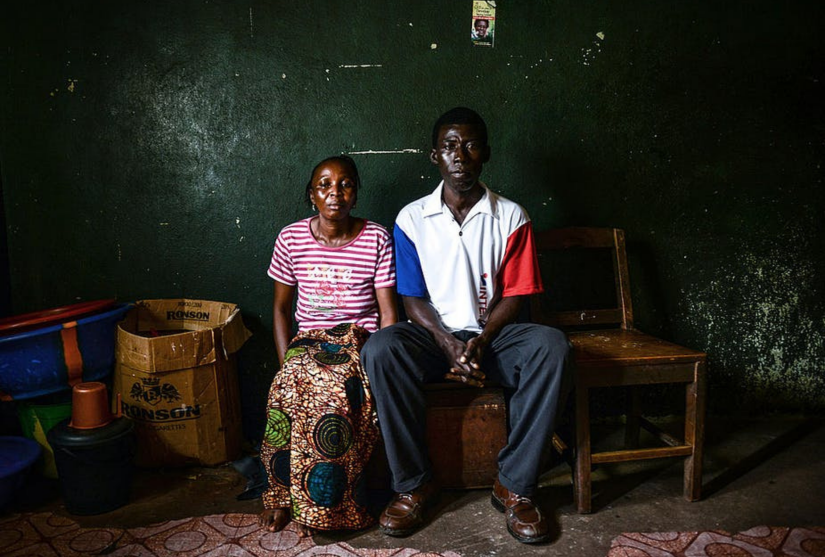It is imperative that Ebola survivors have access to healthcare that is safe and responsive to their needs.

Rigiatu Kamara (R), 38, who has recovered from the Ebola virus disease poses with her husband Baibai Kamara (L), 40, in Kenema, Sierra Leone, on August 26, 2014. Photo by Mohammed Elshamy/Anadolu Agency/Getty Images
West Africa’s Ebola outbreak between 2013 and 2016 was the most widespread in the history of the disease. By the end of the outbreak, more than 28,000 people were infected and 11,000 succumbed to the disease.
Despite the high number of deaths, the outbreak also had many survivors. More than 10,000 of those infected recovered. Various factors led to a better chance of survival, including early access to treatment, innate immunity, severity of symptoms and the number of virus particles in the body.
However, evidence from various studies shows that Ebola survivors continue to suffer even after the outbreak is over. Physical symptoms include joint and muscle pain, eyesight problems, headaches and extreme fatigue.
Survivors also suffer from numerous psychosocial issues including stigma, depression, anxiety and post-traumatic stress disorder.
Most research on Ebola survivors sets out to understand the health problems associated with the disease. Less is known about their experiences and challenges navigating the healthcare landscape.
To combat this, health researchers conducted studies among Ebola survivors in Sierra Leone to better understand how they seek healthcare solutions.
It was found that Ebola survivors used multiple healthcare options to address their needs, including visiting conventional healthcare providers, pharmacy outlets and traditional medicine practitioners. Survivors also self-medicated with conventional medicines and traditional medicine products.
Most Ebola survivors initially chose to seek care at conventional healthcare facilities, but almost half eventually turned to informal healthcare. This was due to several factors including the high cost of treatment, formal health facilities being far away, medical or surgical treatments not being available or because treatment did not seem to work.
In 2015 Ebola survivors were added to the list of beneficiaries for a free government healthcare initiative. This entitled them to free healthcare services at public health facilities. However survivors reported a shortage of drugs and lack of equipment.
Finally, researchers found Ebola survivors used various information sources beyond healthcare professionals – including family or friends and other Ebola survivors – when making healthcare decisions, and most were unwilling to disclose their use of informal healthcare options to their conventional healthcare providers.
As a way forward, Ebola survivors, health care providers and systems must all do their bit to overcome challenges and ensure Ebola survivors have access to appropriate and safe healthcare.
This article was originally published on The Conversation. Read the full article: Ebola survivors: their health struggles and how best to support them [opens external link].
Byline
Peter B James, Southern Cross University; Abdulai Jawo Bah, University of Sierra Leone; Amie Steel, University of Technology Sydney; Jon Adams, University of Technology Sydney; Jon Wardle, Southern Cross University

